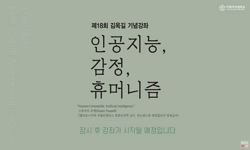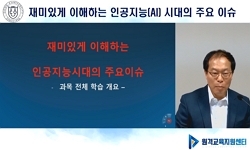본 연구는 인지과학의 담론에서 가장 주목받는 주제 중 하나인 인공지능 자아의 문제를 인지과학과 불교의 자아관을 통해 살펴보면서 두 전통의 ‘자아 없음’에 대한 입장을 비교한다. 이...
http://chineseinput.net/에서 pinyin(병음)방식으로 중국어를 변환할 수 있습니다.
변환된 중국어를 복사하여 사용하시면 됩니다.
- 中文 을 입력하시려면 zhongwen을 입력하시고 space를누르시면됩니다.
- 北京 을 입력하시려면 beijing을 입력하시고 space를 누르시면 됩니다.

인공지능의 자아 정체성 문제를 통해 본 인지과학과 불교의 ‘자아 없음’ 입장 비교 = A Comparion and Examination of Cognitive Science and the Buddhist concept of ‘No-Self’ in Relation to the Problem of AI Self-Identity
한글로보기https://www.riss.kr/link?id=A109165869
-
저자
이충현 (동국대학교 동서사상연구소)
- 발행기관
- 학술지명
- 권호사항
-
발행연도
2024
-
작성언어
Korean
-
주제어
Artificial Intelligence ; Buddhism ; Cognitive Science ; Self-identity ; Defilement ; 인공지능 ; 인지과학 ; 불교 ; 자아정체성 ; 번뇌 ; 무아
-
등재정보
KCI등재후보
-
자료형태
학술저널
-
수록면
183-211(29쪽)
- 제공처
-
0
상세조회 -
0
다운로드
부가정보
국문 초록 (Abstract)
본 연구는 인지과학의 담론에서 가장 주목받는 주제 중 하나인 인공지능 자아의 문제를 인지과학과 불교의 자아관을 통해 살펴보면서 두 전통의 ‘자아 없음’에 대한 입장을 비교한다. 이를 위해 먼저 실체적 자아가 허구라는 사실에 대해 두 전통이 공명하고 있음을 확인한다. 그 다음, 이렇게 두 전통이 자아의 허구성을 인정하지만 임시적으로 가립되는 자아 관념은 인정한다는 유사점이 있음을 살펴본다. 그리고 이 가아(假我)의 관념이 경험의 주체로 하여금 동일한 나를 인식하게 하는데, 이 동일성은 변화가능한 자아 정체성의 구축을 의미하기에 실체적 자아로 전락되지 않음을 검토한다. 마지막으로, 불교는 자아 정체성의 형성 과정에서 번뇌의 작용이 핵심 역할을 한다고 주장함으로써 인간의 마음에서 번뇌와 같은 별도의 작용에 대해 논하지 않는 인지과학의 자아 정체성과는 큰 차이가 있음을 살펴본다. 불교에서의 번뇌는 의식에 제대로 포섭되지 않는 부정적인 작용력이라 할 수 있으며 이것이 개인의 자아 관념 형성에 큰 영향을 끼친다고 간주되므로 이러한 이질적 힘의 별도 작용이 내적으로 부재한 가운데 형성된 AI의 자아 정체성은 인간의 것과는 개방성과 가치의 측면에서 매우 다름을 알 수 있다.
다국어 초록 (Multilingual Abstract)
In the field of cognitive science one of the most research topics is the notion of AI and the ‘self’. This paper intends of examining this topic by comparing the tradition of cognitive science with that of Buddhism, namely in relation to the conce...
In the field of cognitive science one of the most research topics is the notion of AI and the ‘self’. This paper intends of examining this topic by comparing the tradition of cognitive science with that of Buddhism, namely in relation to the concept of the ‘no self’. Significantly both traditions share the view that the substantial self is illusory. That is to say, that within these discourses ones perception of the self is an illusion. However, this illusion of the self is inevitable and essential as it allows the subject to operate within reality, for self- identification with its ‘I’. This aspect of the self that the subject regards as I is ‘self-indentity’. It is not not static but is constantly in a state of flux because it is continuedly being amended based upon the subject’s experiences. Although this largely true of both the cognitive science and Buddhism, they deviate substantially on the formation of self-identity. Unlike cognitive science’s perspectives, that of Buddhism is based upon the idea that defilements(kleśas) exert a profound influence on how the ‘I’ comes into being. According to Buddhism, defilements are negative-operative forces that are not fully integrated into the consciousness. The self-indentity of AI will differ greatly from that of human consciousness because it lacks these negative-operative forces. Therefore, there will be disparity in the scope and value when examining and comparing self-identity between the two domains.
동일학술지(권/호) 다른 논문
-
코로나19 팬데믹 이후 공공 전시이벤트에서 나타난 포스트휴먼과 이주·탈식민의 미술적 양상들
- 대구가톨릭대학교 인문과학연구소
- 김동일
- 2024
- KCI등재후보
-
<오토마타>에 나타난 기계의 자의식과 포스트휴먼의 도래
- 대구가톨릭대학교 인문과학연구소
- 조민현
- 2024
- KCI등재후보
-
기술적 기후 재앙과 더스트 생태학자의 환영 - 김초엽의 『지구 끝의 온실』을 중심으로
- 대구가톨릭대학교 인문과학연구소
- 오윤호
- 2024
- KCI등재후보
-
나희덕의 시와 시론에 나타난 포스트휴먼 시대 공생의 상상과 윤리 - 2010년대 이후 작품을 중심으로 -
- 대구가톨릭대학교 인문과학연구소
- 황선희
- 2024
- KCI등재후보




 KCI
KCI KISS
KISS






